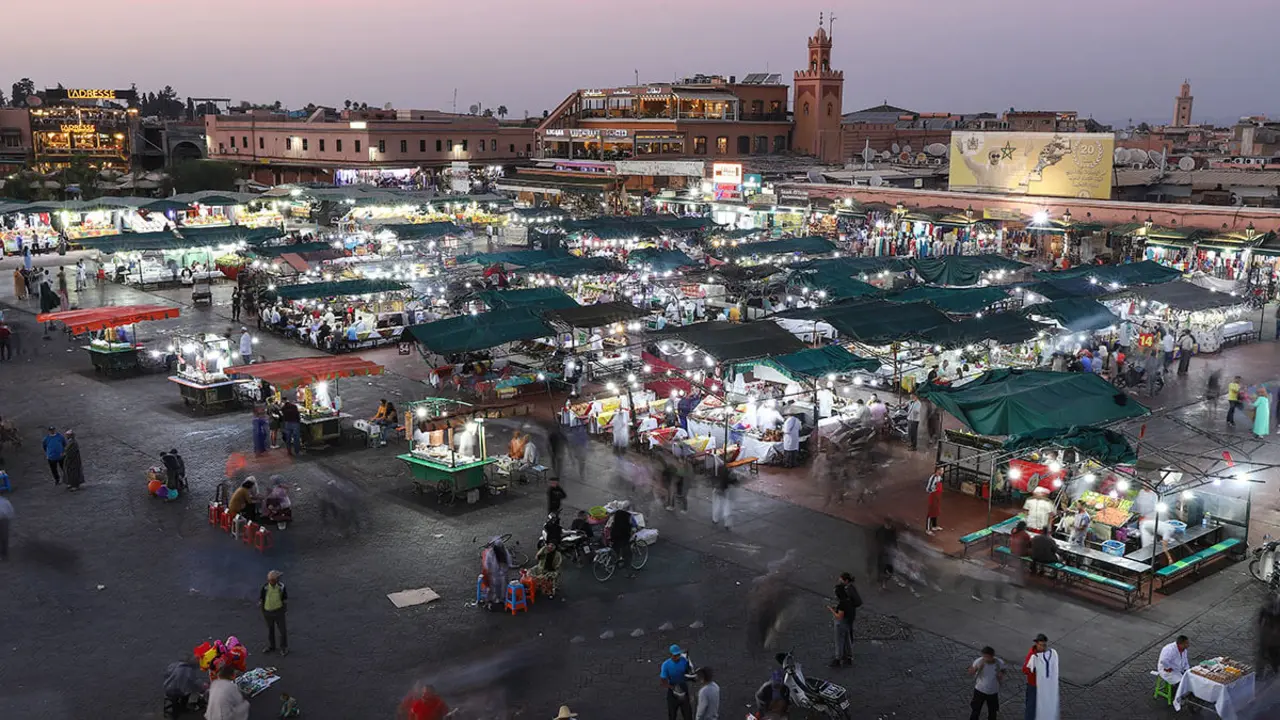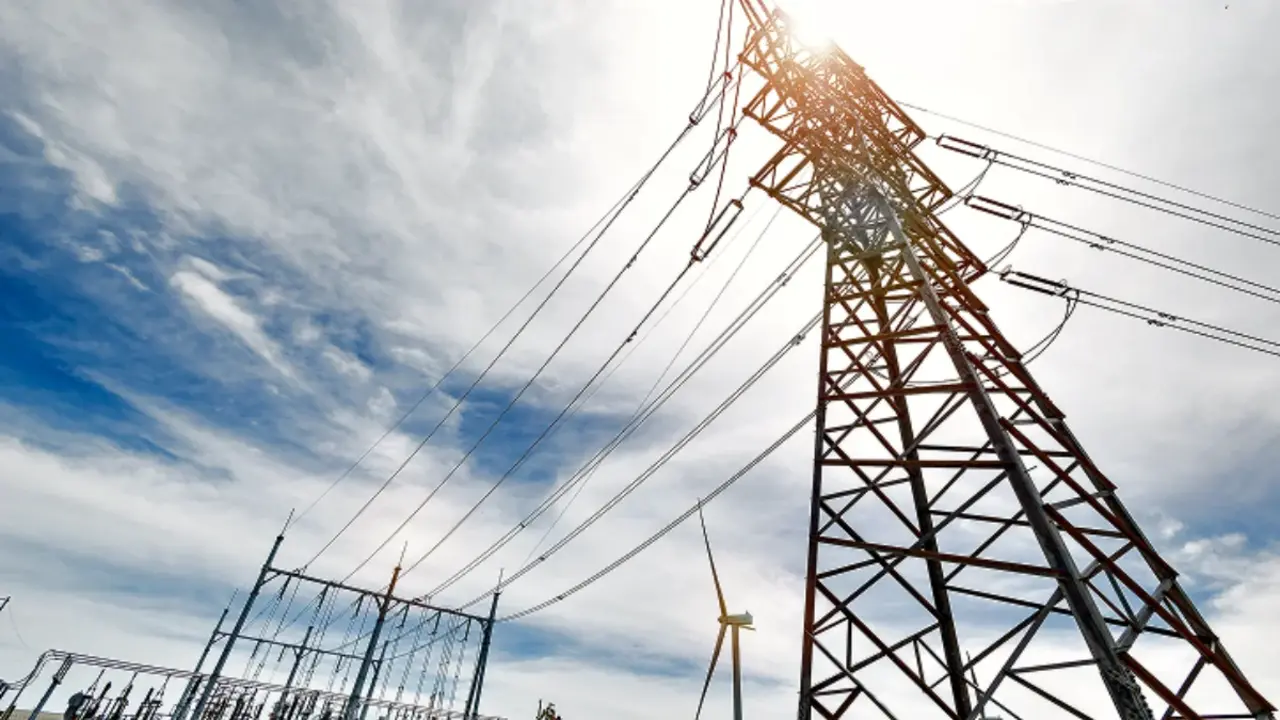The MENA region's economic challenges in the face of Russia's invasion of Ukraine

The MENA (Middle East and North Africa) region is facing a number of major economic and social challenges in the aftermath of the pandemic of COVID-19 and the ongoing Ukrainian conflict. While the economic outlook for the region is generally "positive", in the words of Saudi Arabian Finance Minister Mohammed Al-Jadaan, not all countries in the region will experience the same economic growth or at the same speed.
Al-Jaadan told a panel at the World Economic Forum (WEF) that, although the medium-term economic outlook was "very positive", what might "fit in one country, or the challenges it faces, might not be the same in another" and so one should be "careful not to take MENA as a single bloc", even though there are "many common advantages and challenges".

He notes that, while challenges are found all over the world, "in certain areas of the MENA region they are more serious". He explains that "energy security, driven by the post-pandemic recovery, supply chain challenges and now food security is also another serious issue, again fuelled by the geopolitical situation".
Among these challenges is the fact that the MENA region is home to one of the world's largest refugee and humanitarian crises. With the war in Ukraine, this problem has been further aggravated, especially in terms of food supply. Countries in the region such as Egypt, Lebanon, Syria, Yemen, Jordan and Palestine, which are already facing various crises and inflation, import 50% of their wheat from Russia.

Some are already experiencing severe levels of famine, a situation that could worsen as the interruption of wheat grain imports risks exacerbating food insecurity, especially in those countries experiencing severe internal conflicts.
In this context, CARE MENA regional director Nirvana Shawki said, "Wheat prices have skyrocketed in an unprecedented way since the beginning of the crisis in Ukraine. War is coming to the shores of MENA in the form of hunger. People are going hungry because of conflict and violence; because of inequality; because of the impacts of climate change; because of the loss of land, jobs or prospects; because of a fight against COVID-19; and a conflict thousands of miles away from them that has left them even further behind".

Egypt, rising prices
Egypt could face a major food crisis in terms of wheat supply as a direct consequence of Russia's invasion of Ukraine, since these two countries are the largest suppliers of wheat to Egypt. The country, with a population of 102.3 million, needs around 18 million tonnes of wheat per year to supply all its inhabitants, a figure that has been reduced since the beginning of the conflict in Ukraine.
Since the first day of the invasion, the price of wheat has risen by 44% in the first week alone, while sunflower oil has risen by 32%. These figures come in a country where the population consumes 150/180 kilos of bread per capita per year. This is significantly higher than the world average of around 70/80 kilos per year.
In this way, the supply of wheat, and thus bread, makes the supply of wheat to the Egyptian population an essential component that influences the country's political stability.

Although Egyptian citizens such as Mohamed Abdalhamid have not yet noticed the wheat shortage and indicate that "the supply of bread is still sufficient", they do denounce a "significant rise in prices in general" and point out that "the price of the pound has been devalued a month ago in relation to the euro and the dollar by an average of two pounds more".
Lebanon, shortage of wheat stocks
In addition to the political crisis, the economic meltdown, the COVID pandemic and the social crisis, food shortages have not been slow to hit Lebanon. The country is home to two million Lebanese and a million Syrian and Palestinian refugees, who are already suffering from a major food crisis.
Lebanon, like Egypt, is heavily dependent on Ukraine and Russia for wheat supplies, with a total of 66%, followed by 12% of Russian wheat. In addition, the country's stockpiling capacity is only 50%, as the country's cereal reserve was severely damaged by the Beirut explosion of 4 August 2020.

Thus, the director of CARE Lebanon, Bujar Hoxha, stated that "bread rationing started a few days ago. The price of a bag of bread has increased by 20% in a matter of a few days and Lebanon now has only three weeks of wheat in stock".
Syria, in the aftermath of an inhumane conflict
Syria continues to suffer from the aftermath of the civil war, an internal conflict that turned into an international conflict and brought with it one of the most severe humanitarian crises of our century, displacing 12 million people.
Today, three years after the end of the war, more than 65% of the population is in need of humanitarian assistance. Now, the war in Ukraine has caused prices to rise to record levels while Syrian families continue to lose their livelihoods.

According to humanitarian organisations based in Syria, "people are queuing for hours to get bread and are still trying to recover from the wounds of war", at a time when a major wave of food shortages is expected in the area.
Yemen, mired in one of the world's worst civil wars
In addition to the country's already entrenched war, with all the crises that the conflict itself entails, Yemen is experiencing one of the worst humanitarian crises in the world. According to the Integrated Food Security Phase Classification (IPC) report, some 31,000 people are living at extreme hunger levels.

The humanitarian needs continue to increase exponentially in a scenario that is not new for the Yemeni population after eight years of civil war, which, in the same way as in Syria, has become an international conflict where different powers are fighting for their own interests.








